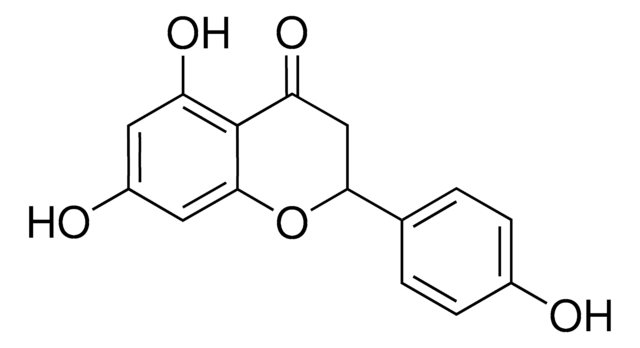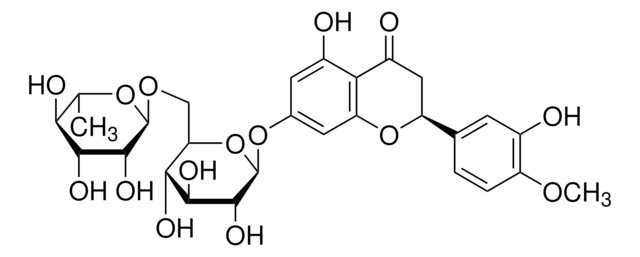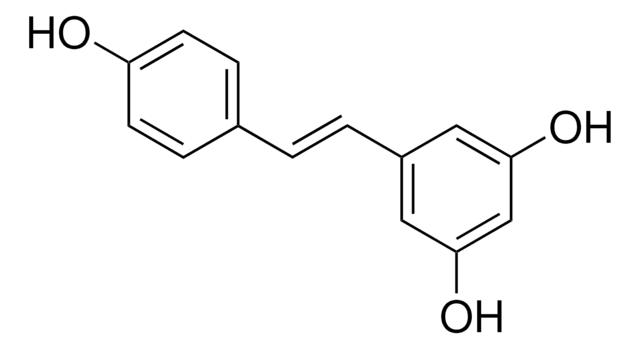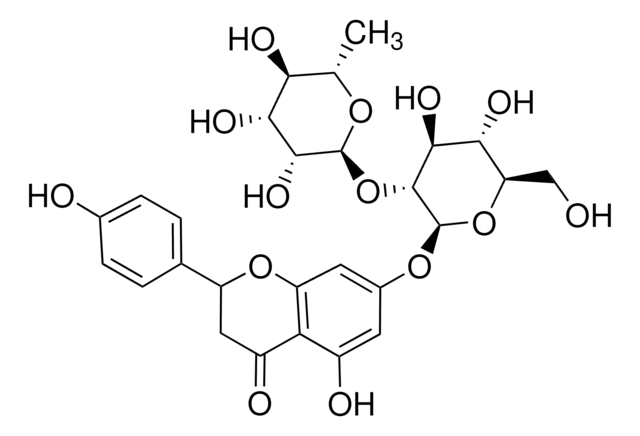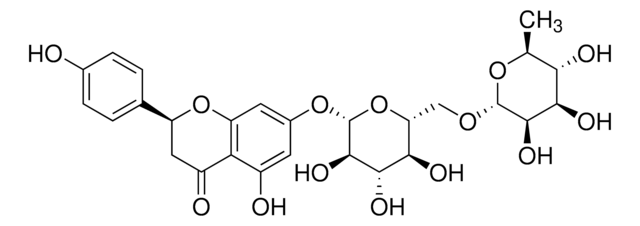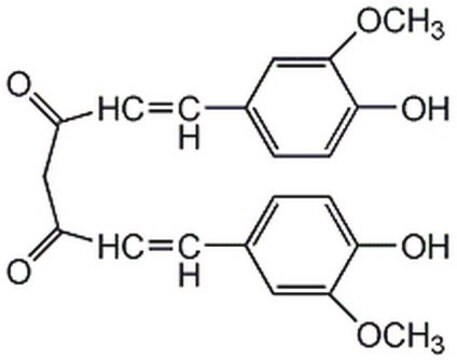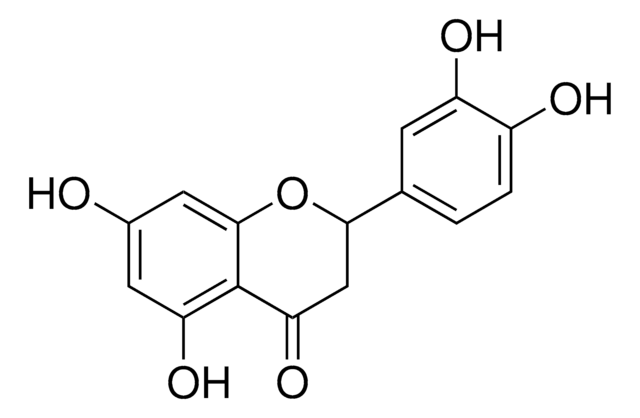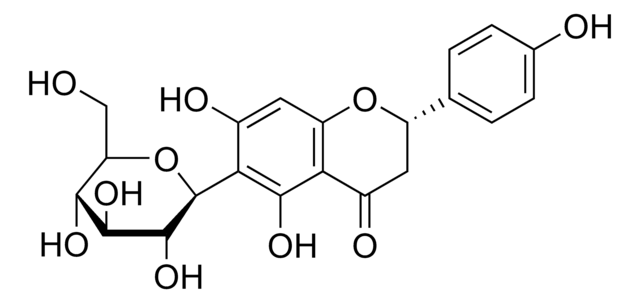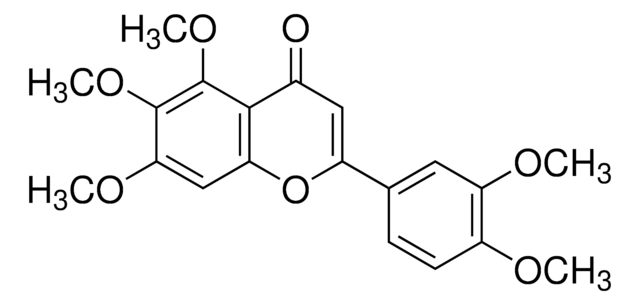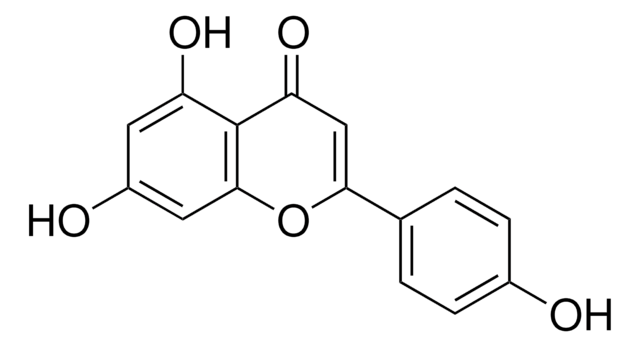推荐产品
生物源
synthetic
化驗
≥95%
形狀
powder (with a light tan cast)
mp
227-232 °C
應用
flavors and fragrances
文件
see Safety & Documentation for available documents
食物過敏原
no known allergens
感官的
odorless
SMILES 字串
COc1ccc(cc1O)C2CC(=O)c3c(O)cc(O)cc3O2
InChI
1S/C16H14O6/c1-21-13-3-2-8(4-10(13)18)14-7-12(20)16-11(19)5-9(17)6-15(16)22-14/h2-6,14,17-19H,7H2,1H3
InChI 密鑰
AIONOLUJZLIMTK-UHFFFAOYSA-N
正在寻找类似产品? 访问 产品对比指南
免責聲明
用于研发&或非欧盟(EU)食品用途。不用于零售。
儲存類別代碼
11 - Combustible Solids
水污染物質分類(WGK)
WGK 2
閃點(°F)
Not applicable
閃點(°C)
Not applicable
其他客户在看
Elena Valeria Fuior et al.
Pharmaceutics, 11(8) (2019-08-07)
Citrus flavonoids have well-documented protective effects on cardiovascular system, but the poor water solubility and reduced bioavailability restrict their therapeutic use. We aimed to overcome these limitations and encapsulated naringenin and hesperetin into lipid nanoemulsions (LNs), targeted to vascular cell
Ramesh Elango et al.
Journal of Asian natural products research, 20(6), 559-569 (2017-05-26)
We studied the chemoprevention property of hesperetin on H522 cells using MTT, an apoptosis assay, an analysis of cell cycle progression, and the mitochondrial membrane potential, and apoptotic marker gene expression was determined using quantitative PCR. Hesperetin enhanced apoptotic cell
Weixin Wang et al.
Journal of agricultural and food chemistry, 63(43), 9488-9495 (2015-10-13)
The objective of this study was to investigate the ability of resveratrol and hesperetin to scavenge acrolein at pH 7.4 and 37 °C. About 6.4 or 5.2% of acrolein remained after reaction with resveratrol or hesperetin for 12 h at
Jose Valdo Madeira et al.
Biotechnology progress, 31(5), 1273-1279 (2015-06-18)
Recent studies have pointed to a reduction in the incidence of some cancers, diabetes, and neuro-degenerative diseases as a result of human health benefits from flavanones. Currently, flavanones are obtained by chemical synthesis or extraction from plants, and these processes
Manuel Y Schär et al.
The American journal of clinical nutrition, 101(5), 931-938 (2015-03-20)
Epidemiologic data suggest inverse associations between citrus flavanone intake and cardiovascular disease (CVD) risk. However, insufficient randomized controlled trial data limit our understanding of the mechanisms by which flavanones and their metabolites potentially reduce cardiovascular risk factors. We examined the
Global Trade Item Number
| 货号 | GTIN |
|---|---|
| W431300-SAMPLE | |
| W431300-1KG | |
| W431300-50G | 4061835509386 |
| W431300-5G | 4061835516544 |
我们的科学家团队拥有各种研究领域经验,包括生命科学、材料科学、化学合成、色谱、分析及许多其他领域.
联系客户支持
